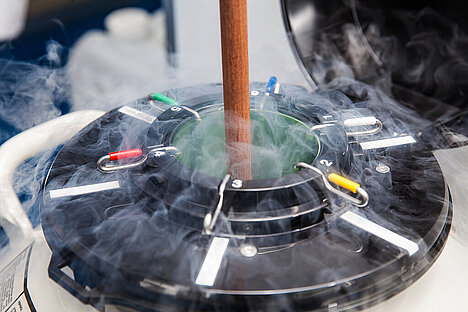Nitrate

Nitrate is a chemical compound consisting of nitrogen and oxygen. It occurs naturally in the environment, for example in soil or groundwater. Nitrate is also used as a fertilizer in agriculture to promote plant growth. But what does nitrate mean for your dog? In this article, you can find out more about the advantages and disadvantages of nitrate in dog food.
The benefits of nitrate
Nitrate is not fundamentally bad for your dog. In small amounts, it can even have positive effects. For example, nitrate can improve blood circulation by dilating the blood vessels. This can increase the oxygen supply to organs and muscles and boost your dog's performance. Nitrate can also strengthen the immune system by promoting the formation of nitric oxide. This substance has an antibacterial and anti-inflammatory effect.
The disadvantages of nitrate
However, nitrate can also have negative consequences if it is consumed in excessive quantities. Firstly, nitrate can lead to so-called methemoglobinemia. This is a blood poisoning in which the red blood pigment haemoglobin is no longer able to transport oxygen. The symptoms are pale or blue mucous membranes, shortness of breath, weakness and unconsciousness. On the other hand, nitrate can contribute to an increased formation of nitrosamines. These are carcinogenic substances that are mainly found in cured or smoked meat.
How much nitrate is too much?
There is no general answer to the question of how much nitrate is harmful for your dog. It depends on various factors, such as body weight, state of health, food quality and intake of other nutrients. In general, however, you should not give your dog food that contains more than 50 milligrams of nitrate per kilogram. This corresponds to the limit value for drinking water in Germany. You should also make sure that your dog does not eat too much cured or smoked meat, as this increases the nitrate load.
Nitrate is an ingredient that can have both advantages and disadvantages for your dog. In small amounts it can promote your dog's health and performance, but in high amounts it can lead to serious problems.
If you notice any signs of hypersensitivity or poisoning in your dog, you should see your vet immediately. We are not a substitute for a vet, but we try to be as accurate as possible. Every dog reacts differently and we recommend you get a second opinion or consult your vet if in doubt.
Stay healthy and take good care of your four-legged friend!😊